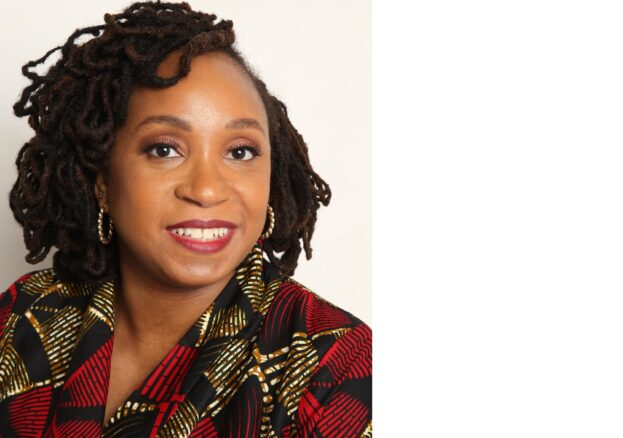
I founded Black History Studies in 2006 with my husband, Mark, to teach Black History and Black Studies from an African perspective. Due to the limited opportunities available at that time, we established Black History Studies to educate people and fill the gaps on topics that are not taught at school.
Under our sister company, Black History Study Tours, we are dedicated to promoting cultural tourism to areas of African heritage and have organised successful group tours to Egypt, Spain, Portugal, Paris, Brussels, and Amsterdam.
Our mission echoes the quote by historian Arthur Schomburg that “African history is nothing but the missing pages of world history.” We believe it is very important that all history should be taught to everyone and throughout the year, not just in Black History Month. Black History is a subject that can be interesting to all. This is evident when we organise presentations, webinars, walking tours, and museum tours to places such as the British Museum and the International Slavery Museum in Liverpool. We have a diverse audience eager to learn about the contributions of Black people to the development of history and civilisation.
Our history did not start with African chattel enslavement. On our curriculum, history starts at the origin of humanity! On 24th November 1974, the oldest known skeletal remains of anatomically modern humans (or homo sapiens sapiens) were excavated at sites in East Africa. Human remains were discovered at Omo in Ethiopia and were dated at 195,000 years old, the oldest known in the world. Professor Donald Johanson of the US Institute of Human Origins gave the remains the name ‘Lucy.’ Having been discovered in Ethiopia, the skeletal remains were later renamed Dinquinesh, a word in Ethiopia’s official language of Amharic, meaning ‘you are marvellous, unique, one of a kind.’
Some of the challenges we faced in our journey in regards to correcting historical inaccuracies are that people have been told so many lies and misinformation about Black History and Black Studies that when presented with the truth or corrected version of history, as Frantz Fanon states, it can lead to cognitive dissonance. People may ignore this new information and evidence presented so they can hold on to their original beliefs. This often occurs when notions of white supremacy are challenged as the African contributions to history and civilisation are exposed and explored.
The theme for 2024 is “Reclaiming Narratives,” and I will give you five narratives that aim to uncover the hidden histories of people of African and Caribbean descent who have contributed to World History:
- The Roman Presence: The presence of Africans in England dates back to at least the Roman period when African soldiers who served as part of the Roman army were stationed at Hadrian’s Wall during the 2nd century AD. Septimus Severus, the emperor who was born in Libya, spent his last three years in Britain before he died in York in 211 AD.
- The North African Woman in York: In 1901, the ancient grave of a woman was discovered in York. Over a hundred years later, tests revealed her North African origin and established her as the earliest proven evidence of a Black woman in the British Isles. The contents of her grave indicated she was a woman of means and high social status. The engraving “Hail Sister May You Live in God” found at the site suggests a Christian burial.
- Black History in the Holocaust: Between 1933 and 1945, 50,000 African people were killed by Hitler and the Nazis during the Jewish Holocaust. The fate of Black people in Nazi Germany and in German-occupied territories ranged from isolation to persecution, sterilisation, medical experimentation, incarceration, brutality, and murder. There are stories of Black survivors of the Holocaust such as political prisoner Lionel Romney, who spent four years, from 1940 to 1944, in the Italian internment camp system, and the final year of the war, 1944-45, in the notorious Mauthausen concentration camp in Austria.
- Alexander Pushkin: The great Russian poet, Alexander Pushkin (1799-1837), who was partly of African descent, became the father of Russian literature in the 19th century. Pushkin’s work as a journalist marked the birth of the Russian magazine culture, including him devising and contributing heavily to one of the most influential literary magazines of the 19th century, the Sovremennik (The Contemporary).
- The African Times and Orient Review: The ‘Africa Times and Orient Review’ is the first political journal produced by and for Black people ever published in Britain. Duse Mohamed Ali, an Egyptian Nationalist and Pan-Africanist journalist, founded The African Times and Orient Review in London in July 1912. It was printed in Fleet Street in London. Marcus Garvey was a staff writer at the newspaper.
To learn more about the work of Black History Studies, please visit the website: www.blackhistorystudies.com.
Charmaine Simpson is the Chief Executive Officer and co-founder of Black History Studies. She also serves as the Director of Black History Study Tours, dedicated to promoting cultural tourism to areas of African heritage. As a financial educator and literacy advocate, Charmaine organises courses, workshops, and events to enhance financial literacy.
